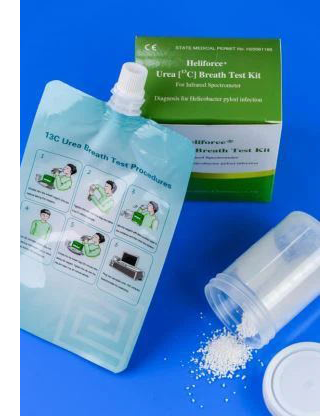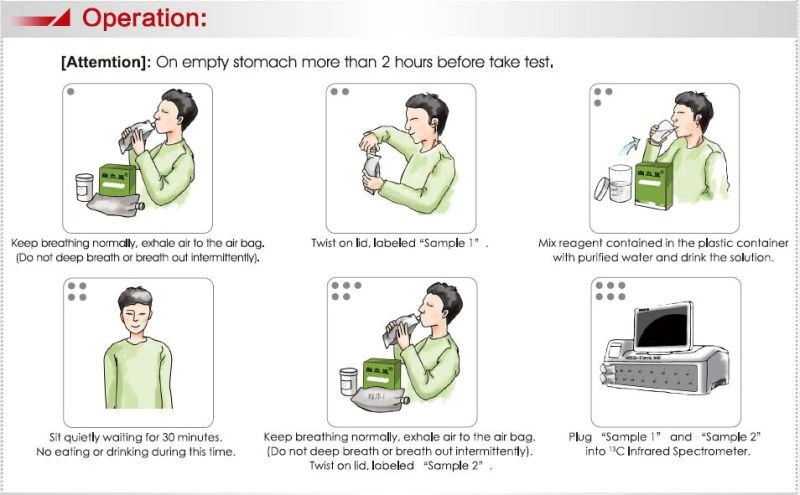Helicobacter pylori (H. pylori) infection occurs when H. pylori bacteria infect your stomach. This usually happens during childhood. A common cause of peptic ulcers, H. pylori infection may be present in more than half the people in the world.
Most people don't realize they have H. pylori infection, because they never get sick from it. If you develop signs and symptoms of a peptic ulcer, your doctor will probably test you for H. pylori infection

 The urea breath test is a non-invasive, fast, and extremely
The urea breath test is a non-invasive, fast, and extremely
accurate (95% sensitivity and specificity) to detect the presence of active H. pylori infection. Peer reviews consistently rank the urea breath test as the best method to detect H. pylori infection for differential diagnosis of peptic ulcer disease and chronic active gastritis. The test is also ideal for monitoring therapeutic outcomes and confirmation of cure.
This simple procedure requires administering a challenge substrate that is a non-radioactive 13C urea, collecting patients’ breath samples, and sending the samples to our lab for measurement of 13C enrichment levels. Test kits can be used in your office or sent home with your patient.
The CDC reports that H. pylori is common worldwide. Estimated prevalence is 70% in developing countries and 30%–40% in the United States and other industrialized countries. It affects both adults and children. Age, exposure to contaminated food and water, poor hygiene, living with someone who has previously been diagnosed with H. pylori, and exposure to contaminated sewage all play a role in H. pylori infection.
